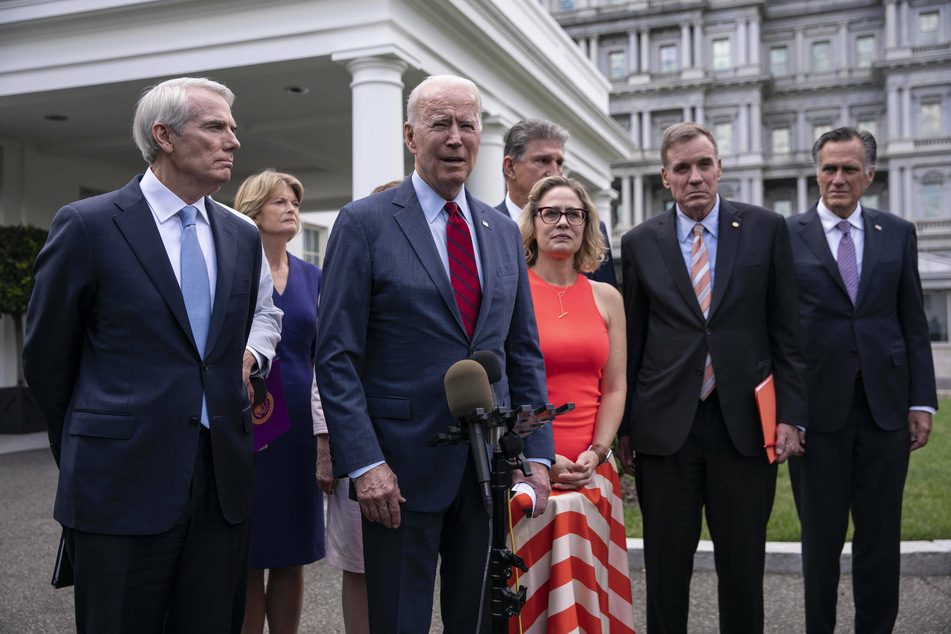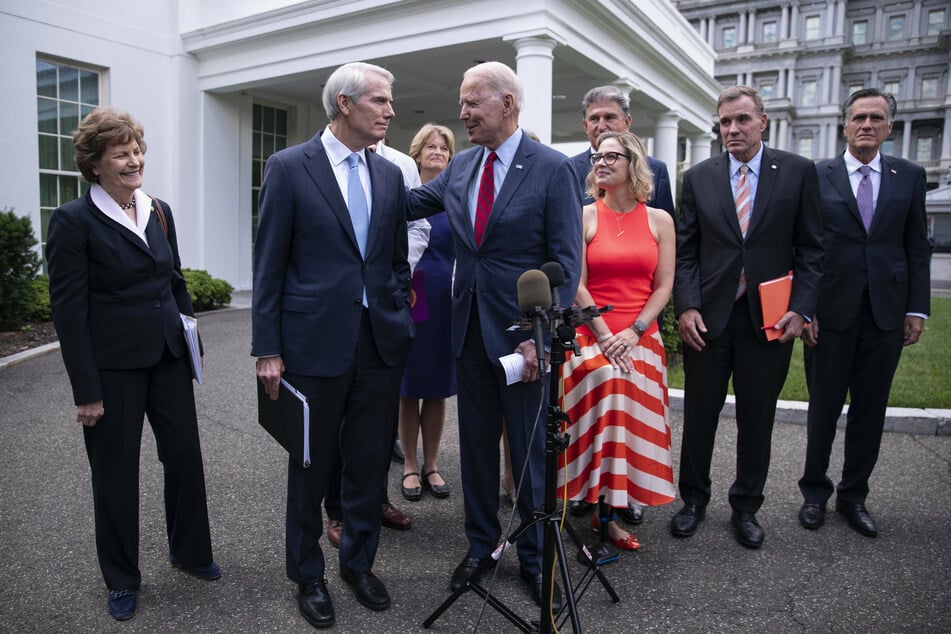Biden announces bipartisan deal on trillion-dollar infrastructure bill
Washington DC – President Joe Biden announced on Thursday that he had reached a deal with a bipartisan group of lawmakers on an infrastructure package.

"We have a deal," Biden told reporters on Thursday outside the White House. He was surrounded by a group of Republican senators as well as moderate Democrats.
The proposal calls for $579 million in new spending over five years and a total of $1.2 trillion over ten years. The funds include $312 billion for transportation programs and $266 billion for water infrastructure, broadband internet, environmental protections, and more.
The measures will be financed primarily through reducing the tax gap and reinvesting unused Covid and unemployment insurance relief funds.
"I think it’s really important, we’ve all agreed that none of us got all that we wanted. I clearly didn’t get all I wanted. They gave more than I think maybe they were inclined to give in the first place," Biden insisted, after acknowledging that many of his spending proposals for American families were nixed in the bipartisan deal.
"This reminds me of the days we used to get an awful lot done in the United States Congress, we actually worked with one another," he claimed. "Bipartisan deal means compromise."
Progressives say the bipartisan deal isn't enough

But many progressives question why lawmakers should prioritize bipartisanship when everyday Americans are suffering and not seeing substantial changes in their material conditions.
New York Rep. Alexandria Ocasio-Cortez wrote on Twitter, "The diversity of this 'bipartisan coalition' pretty perfectly conveys which communities get centered and which get left behind when leaders prioritize bipartisan dealmaking over inclusive lawmaking (which prioritizes delivering the most impact possible for the most people)."
Biden is trying to walk the line between praising bipartisan lawmaking and not alienating progressives, saying he would not sign the deal without also getting another bill in return through budget reconciliation, a process that allows for the passage of a bill with 50 rather than the usual 60 Senate votes.
"If only one comes to me, this is the only one that comes to me, I’m not signing it. It’s in tandem," Biden said of the bipartisan deal.
Cover photo: IMAGO / MediaPunch

